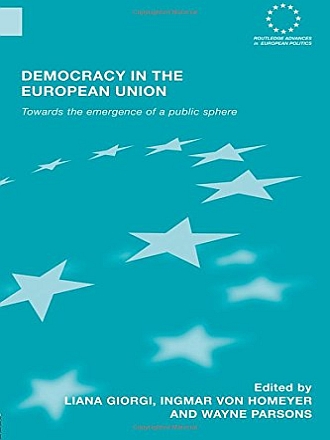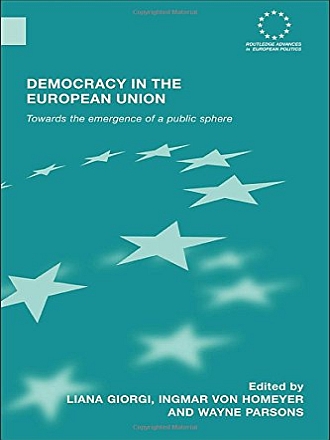A European Public Space Observatory (EUROPUB)
- Project
- Research Program
- Duration
-
-
How democratic is Europe? Is it getting worse? Is it getting better? Should we care? Do we care? The European Public Space Observatory project (EUROPUB) will assemble information that allows the monitoring of European democracy in the 21st century in the context of the emerging institutional constellations and socio-political practices of the European Union and the process of European integration.
The process of European integration has given rise to a new object of study – the European society. Several old questions concerning identity, citizenship, democracy, government and institutions must be raised anew, this time at the European level. These are not only academic issues, but also major political concerns at European and Member State level. There are concerns that transfers of power to European institutions produce a characteristically new and worrying form of democratic 'deficit'. Both the justification of the European project and its viability are at stake. Stated bluntly, we cannot afford to take it for granted that Europe is a 'good thing' independently of its actual institutional dynamics. Ongoing reforms of European Union institutions represent an important step forward. They promise to render decision processes at European level both more transparent and more accountable. Yet, where does this leave participation and the public? Is there a European public space? Does Europe provide opportunity structures for citizens and their representatives to discuss, deliberate and evaluate issues of public relevance? The EUROPUB project funded under the European Commission's Fifth Framework Programme attempts to answer the above questions and by doing so come up with a system to monitor the state of democracy in Europe. The project commenced in July 2001 and is projected for 36 months. To inform about recent developments and progress, a project homepage has been installed, where the published case studies and outcomes are available.
The project results have been published in the book "Democracy in the European Union - Towards the emergence of a public sphere".
Research Objectives and Scope outline a concept of the European public space that is in line with both democratic theory and the socio-institutional realities of EU level policymaking. Evaluate to what extent present decision-making structures and practices at the European level provide an effective system of political contestation.
Four policy studies are planned:
- citizenship policy;
- social policy;
- regional policy;
- environmental policy.
A fifth case study analyses the debate on European democratic values and procedures in relation to the question of how to best cope with populism and the extreme right-wing. Examine the extent to which there is, or is tending to emerge, a genuinely European 'political class'. One aspect of a genuinely public space is that its geographical, sectoral and ideological components are tied together by a range of political actors that have general political involvement and competence. Devise and establish measurable indicators for collecting data and information to monitor developments in the European public space over time. This itself is expected to contribute to the emergence of public space at the European level, as monitoring in a broad sense is essential to citizenship.





